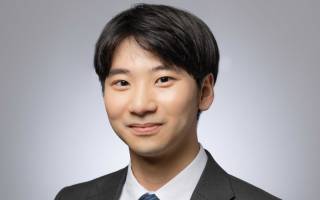Why did you choose to study at UCL Laws?
I was the first batch of applicants for the LLB (UCL) and LLB (the University of Hong Kong, HKU) programme and later graduated as the first cohort.
The introduction of this programme was a gamechanger for aspiring lawyers in Hong Kong. Obtaining two law degrees in just four years was almost unheard of and holding a Hong Kong LLB meant I would be eligible to apply to the Hong Kong PCLL (equivalent of the LPC).
Even when I was studying business management in high school, I knew I wanted to become a lawyer familiar with more than one legal system to help clients bridge the gaps between different jurisdictions and cultures. The dual degree would help me learn the framework of at least four legal systems in depth: England & Wales, EU, Hong Kong, and Mainland China. This would help me effortlessly navigate cross-border deals and keep me aware of different regional perspectives.
Additionally, both UCL and HKU have well established legal clinics and pro bono programmes. Doing pro bono work and interacting with clients and stakeholders across four years would train me to think like a lawyer from the first day and be sensitive to the cultural and "human" elements in solving legal problems.
Spending two years at UCL and at HKU would also allow more time to integrate into the university's community and join societies. The depth of experiences and leadership opportunities wouldn't have been available on a simple exchange programme.
What did you learn during your time at UCL Laws, in class or out?
The tutorials taught me to think on my feet and see issues from different perspectives. I remember being lost for words in my first tutorial, unable to respond when my view was challenged by the tutor. I quickly learned the importance of preparation, and the need to read materials efficiently and anticipate challenges my tutor and fellow students would raise. After the first term, I started to develop my own thoughts and became confident in developing more sophisticated arguments which would address queries from different perspectives. I am now sharper with my thoughts and mostly prepared for my meetings at work – the image of my tutor questioning every point I make is still fresh in my head! I am pleased that after my first year at UCL, I never allowed myself to give "I don't know" as an answer again.
I was the project coordinator for the Grassroots Human Rights Project at the UCL Centre for Access to Justice. In this role, I planned seminars and delivered them to Year 8 and Year 12 students at various schools in London. I was confident the students would understand the seminars since the content made sense during my rehearsals. However, within a few minutes of running my first seminar, I noticed I was losing my audience and I wasn't using language that students could relate to. At that moment I realised that I would lose touch with the rest of the world which did not study law – I had to find a way to explain complex legal concepts to a non-expert audience. I improved by coming up with analogies and using my audience's interests as an anchor for explaining more difficult concepts. It was satisfying to see my students later show interest in law after I used examples from a popular reality TV show and recent events to illustrate how the law operated.
What is your fondest memory of your time here?
I joined UCL Laws in 2016, shortly after the Brexit referendum. At the time, the "Brexit case" (the first Miller case) was making its way through the courts and it was exciting to see everything I was learning in Public Law come to life. I remember sitting in the lecture theatre in awe, listening to Professor Jeff King deliver a lecture on the case when the Supreme Court handed down its judgment. Professor King had blogged about the key arguments which were crucial to the case and it felt surreal to be learning from an academic so close to the action. At that time, I felt incredibly privileged to be at UCL and in London to witness history unfold. I was so fascinated, I later applied to be Professor King’s research assistant and got the job. It was a pleasure to assist with research and editorial comments for some of his pieces at the time – all on exciting and interesting topics.
Can you tell us a bit about your current role?
I am an Associate in Freshfields Bruckhaus Deringer's Hong Kong office.
What advice would you give to prospective or current students at UCL?
I would advise prospective and current students to take advantage of any opportunities beyond the usual lectures, tutorials, and moots. UCL’s Law Society runs negotiations and client interviewing competitions which helped me to develop soft skills for work. It is all too easy to compartmentalise knowledge we learn from reading textbooks. But it is through activities like negotiations that students see the big picture, see what truly matters to clients, and learn the role that non-law factors play in real-life problem solving – such as human emotions. I was lucky that the UCL Law Society offered so many of these opportunities.
 Close
Close


